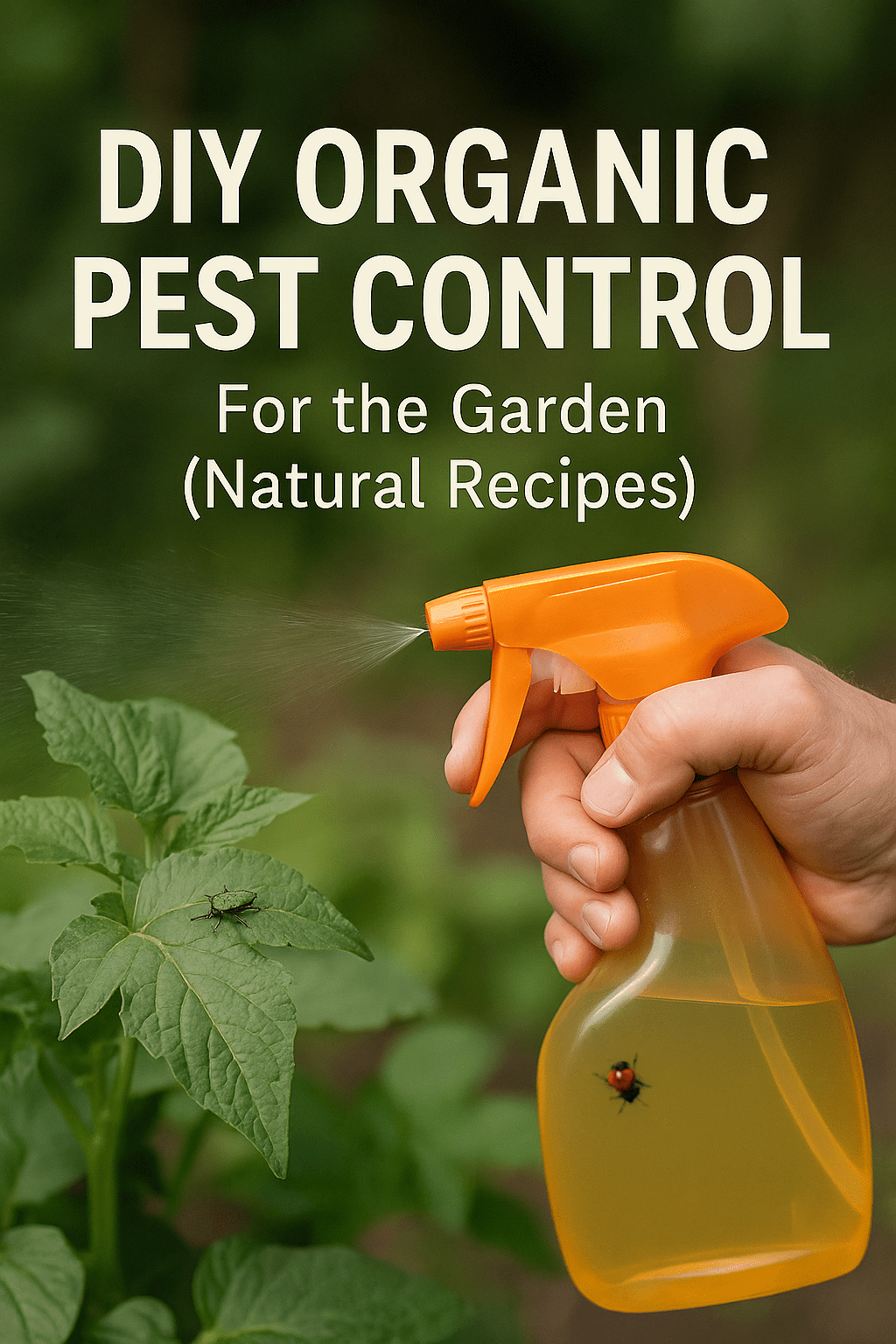
Tired of pests ruining your garden? You don’t need to turn to harsh chemicals. With a few natural ingredients and a little know-how, you can create effective, DIY organic pest control solutions that are safe for you, your plants, and the environment.
Why Use Organic Pest Control?
Conventional pesticides may kill pests, but they also harm beneficial insects like bees and ladybugs — not to mention your soil health and local wildlife. Organic pest control focuses on natural methods that are safer for pollinators, pets, and people while keeping your garden thriving.
Top 5 DIY Organic Pest Control Recipes
1. Garlic and Chili Spray (Repels Aphids, Caterpillars, Mites)
This powerful natural spray repels most soft-bodied insects. The strong scent overwhelms pests while keeping your plants safe.
Ingredients:
- 1 head of garlic
- 1 tablespoon of cayenne pepper or chili powder
- 1 quart of water
- 1 teaspoon of biodegradable dish soap
Instructions: Blend garlic and chili in water. Let sit for 12–24 hours. Strain and add dish soap. Spray directly on leaves (top and underside) every few days or after rain.
2. Neem Oil Spray (Effective for Aphids, Mites, Whiteflies)
Neem oil is a natural pesticide derived from neem tree seeds. It disrupts insect growth and feeding without harming beneficial insects if used properly.
Ingredients:
- 1 tablespoon of cold-pressed neem oil
- 1 teaspoon of mild liquid soap
- 1 quart of warm water
Instructions: Mix all ingredients in a spray bottle. Shake well before each use. Spray in the early morning or late evening to avoid sunburning leaves.
3. Beer Trap for Slugs and Snails
Slugs love the smell of beer and will crawl into a trap and drown. This is a simple, non-toxic way to protect lettuce, strawberries, and young seedlings.
Instructions: Sink a shallow dish or container into the soil so the rim is level with the ground. Fill with beer. Replace every 2–3 days.
4. Epsom Salt Spray (Deters Beetles and Boosts Magnesium)
Epsom salt can deter certain beetles while adding magnesium to the soil, which benefits tomatoes, peppers, and roses.
Ingredients:
- 2 tablespoons of Epsom salt
- 1 gallon of water
Instructions: Dissolve salt in water and spray directly onto leaves or soil every two weeks.
5. Baking Soda Fungal Spray (Prevents Mildew & Fungus)
While not for insects, this organic spray helps prevent powdery mildew and fungal growth — especially on squash, cucumbers, and roses.
Ingredients:
- 1 tablespoon of baking soda
- 1/2 teaspoon of liquid soap
- 1 gallon of water
Instructions: Mix and spray once a week on affected plants. Avoid overuse, as too much baking soda may alter soil pH.
General Tips for Natural Pest Control
- Inspect your plants daily for signs of damage
- Remove pests manually if infestations are small
- Encourage beneficial insects like ladybugs and lacewings
- Rotate crops each season to reduce pest build-up
- Use row covers to protect seedlings from early damage
FAQ: Organic Pest Control
Is organic pest control as effective as chemical sprays?
Yes — when used consistently and correctly. Organic methods may take longer but are safer for your garden and local ecosystem.
Will neem oil kill beneficial insects?
Neem oil mainly targets chewing and sucking insects. Avoid spraying it directly on bees or during peak pollination hours to protect pollinators.
Final Thoughts
DIY organic pest control empowers you to grow a healthier, chemical-free garden while supporting the balance of nature. With these simple recipes, you can manage common pests safely and effectively — and enjoy a more sustainable harvest all season long.
Looking for more ways to protect your garden? Explore our guide on Top Companion Planting Combinations to naturally boost pest resistance and growth.

